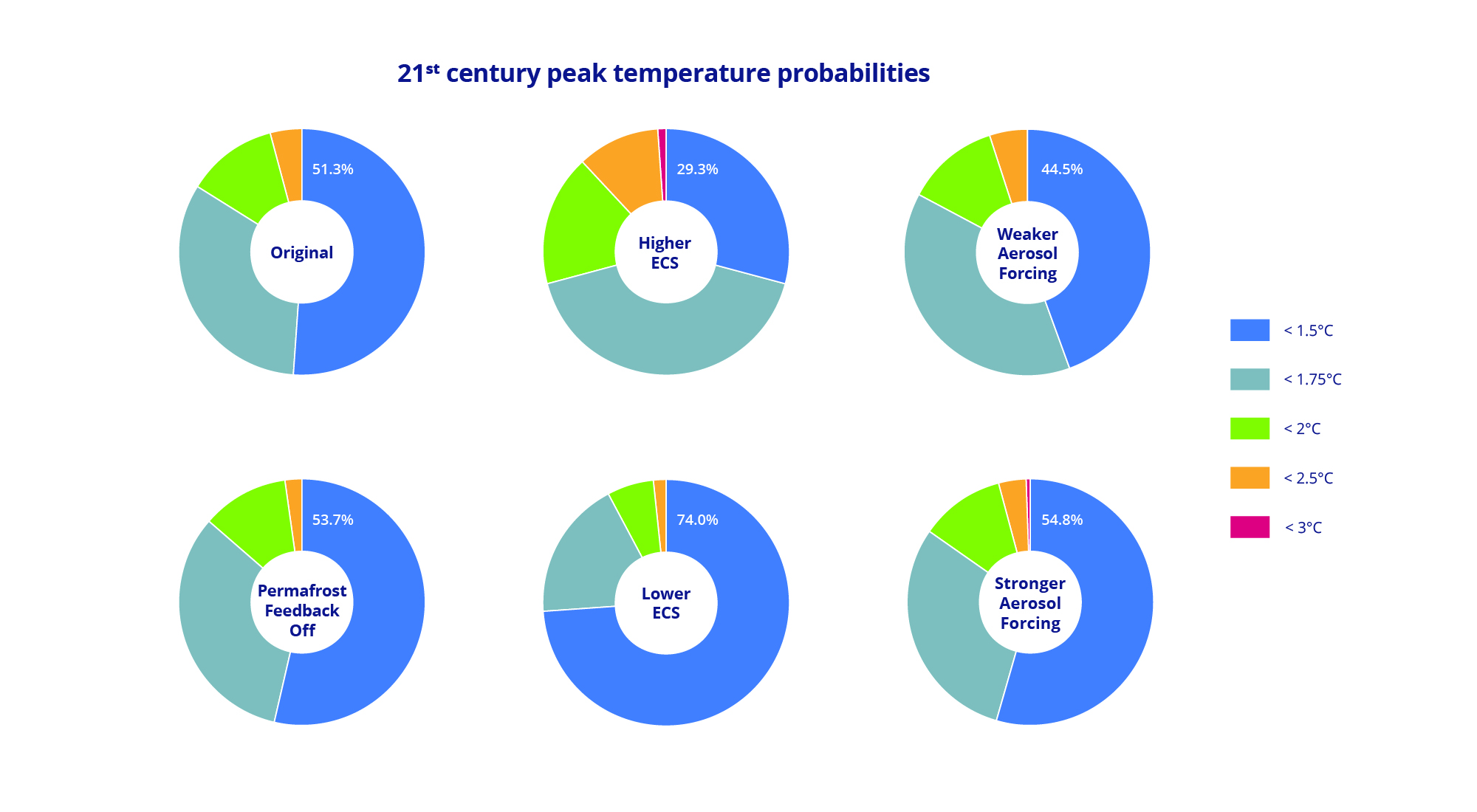Prepare for a range of climate futures, says new report

A new report from an international consortium shows how the chances of global temperature rise staying within 1.5°C this century could range from around 75% to less than 30%, depending on how the climate system responds.
Published at the United Nations climate summit, COP26, the report highlights that warming could still be substantially higher - or lower - than our current best estimates, depending on how the climate system responds to emissions. The authors recommend moving away from a focus on single temperature estimates, and instead prepare for a range of temperature projections indicated by climate models.
The third ZERO IN report from the CONSTRAIN project unpicks some of the science behind the headlines and high-level statements being made at the high-profile climate summit in Glasgow.
Led by the University of Leeds, the CONSTRAIN project is developing improved climate projections for the next 20-50 years on regional as well as global scales.
With deep and rapid emissions reductions, the best estimate is that 1.5°C warming will be reached in the mid-2030s. However, according to this new assessment, a range of possibilities lie beneath that figure. This includes a chance that temperature rise stays below 1.5°C.
The 1.5°C target was established by the Paris Agreement in 2015, committed to by nearly 200 nations.
The project team employed simple climate models to explore how the climate system might respond to different variables.
Their experiments suggest that with strong emissions cuts, the chances of staying below 1.5°C this century could range from around 75% to less than 30%.

“Climate wheels” showing the probabilities of staying below 1.5°C, 1.75°C, 2°C, 2.5°C, and 3°C in the 21st century for the different simple climate model experiments (±10% Equilibrium Climate Sensitivity (ECS), ±10% aerosol forcing strength, permafrost off) under the same stringent emissions reduction pathway that reaches zero fossil and industrial CO2 emissions around 2050.
The findings of the report suggest that, alongside different emissions pathways, complex climate processes could lead us to different climate futures.
Such insights strengthen calls for adaptation and resilience to feature prominently in any climate action plans.
Authors of the report stress that an immediate and rapid cut in greenhouse gas emissions remains the best chance of limiting warming and avoiding the most dangerous climate change impacts.
More information
The EU-funded CONSTRAIN project is a consortium of 14 European partners tasked with developing a better understanding of global and regional climate projections for the next 20-50 years. CONSTRAIN brings together world-leading scientists, 8 of whom have contributed to the recent IPCC AR6 WGI Report. Alongside leading European academic institutions, the consortium includes Climate Analytics, who bring expertise in disseminating this information to policy makers and practitioners.
Visit the CONSTRAIN website for more information about the project.
